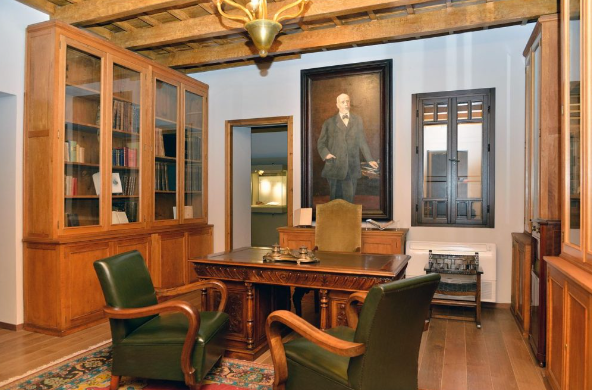Crete, the largest of the Greek islands, is a treasure trove of history and culture, with a heritage that spans millennia. From the ancient Minoan civilization to the Byzantine, Venetian, and Ottoman eras, the island’s past is rich and varied. One of the best ways to delve into this history is by exploring Cretan historical archives. These archives house a wealth of documents, manuscripts, and artifacts that provide invaluable insights into the island’s storied past, offering a fascinating journey through time for researchers, historians, and curious visitors alike.
The Importance of Historical Archives
Historical archives are essential for preserving the cultural and historical heritage of a region. They serve as repositories for documents that record significant events, daily life, and the evolution of societies. In Crete, these archives contain records that span from the ancient Minoan civilization to the 20th century, including administrative documents, personal letters, maps, photographs, and more. These documents are crucial for understanding the island’s history, its governance, social structures, and the everyday lives of its inhabitants.
Key Archives in Crete
Several key archives on the island are particularly noteworthy for their extensive collections and historical significance. These institutions not only preserve historical documents but also provide access to researchers and the general public, fostering a deeper understanding of Cretan history.
- The Historical Museum of Crete: Located in Heraklion, the Historical Museum of Crete is one of the island’s premier institutions for the preservation and study of Cretan history. The museum’s archives include a vast array of documents, photographs, and artifacts that cover a wide range of periods. Notable collections include records from the Venetian and Ottoman periods, which provide insights into the governance, trade, and social life of the island during these eras.
- The Vikelaia Municipal Library: Also situated in Heraklion, the Vikelaia Municipal Library boasts an impressive collection of historical manuscripts, rare books, and documents. The library’s archives include personal papers of significant Cretan figures, historical maps, and rare editions that are invaluable for researchers studying the island’s literary and cultural history.
- The Archive of Cretan Literature: This specialized archive focuses on the literary heritage of Crete, housing manuscripts, letters, and first editions of works by prominent Cretan authors. The archive offers a unique perspective on the literary movements that have shaped Cretan and Greek literature, making it a vital resource for literary scholars.
- The Chania State Archives: Located in the western part of the island, the Chania State Archives contain a rich collection of documents from the Venetian, Ottoman, and modern Greek periods. The archives include administrative records, legal documents, and correspondence that shed light on the political and social history of western Crete.
Research and Discoveries
Exploring Cretan historical archives can lead to significant discoveries and a deeper understanding of the island’s past. Researchers have unearthed valuable information on various aspects of Cretan history, from the administrative practices of the Minoans to the impact of Venetian and Ottoman rule on local communities.
One notable discovery from the archives is the extensive documentation of the Cretan Revolt against Ottoman rule in the 19th century. Letters, military orders, and personal accounts provide a vivid picture of the struggle for independence and the resilience of the Cretan people. These documents are crucial for understanding the broader context of Greek independence and the specific challenges faced by Cretans.
Another significant area of research is the study of Cretan dialects and linguistic evolution. The archives contain a wealth of written material that linguists use to trace changes in the Cretan language over time, offering insights into cultural and social shifts on the island.
Public Access and Education
Many of Crete’s historical archives are committed to making their collections accessible to the public. Institutions often host exhibitions, lectures, and educational programs to engage the community and visitors. These events highlight the importance of archival preservation and encourage a broader appreciation of the island’s history.
Digitalization efforts have also made it possible for a wider audience to access archival materials. Online databases and digital archives provide researchers and enthusiasts with the ability to explore Cretan history from anywhere in the world. This accessibility helps to preserve the documents while making them available for study and education.
Conclusion
Exploring Cretan historical archives is a journey into the heart of the island’s rich and varied past. These archives are invaluable for preserving the cultural heritage of Crete and provide a treasure trove of information for researchers, historians, and anyone interested in the island’s history. From ancient manuscripts to modern documents, the collections offer a comprehensive view of Crete’s evolution through the ages. By delving into these archives, one can uncover the stories, struggles, and achievements that have shaped this remarkable island, ensuring that its legacy continues to inspire future generations.


